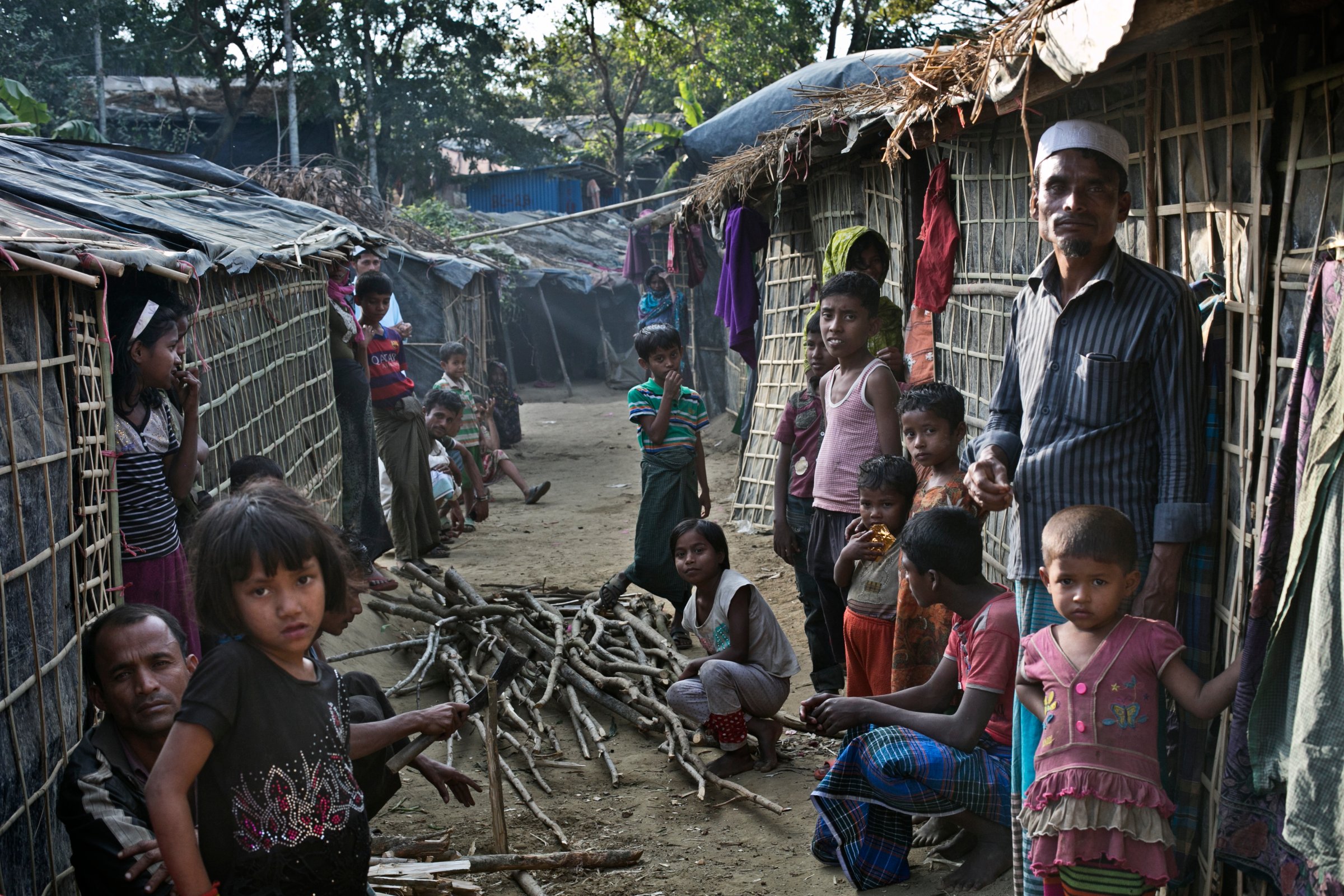
The death toll after a brutal military crackdown on Rohingya Muslims in Myanmar may be in the thousands, U.N. officials say, vastly higher than previous estimates provided by the government.
Reuters reports that two officials based in neighboring Bangladesh, where some 69,000 Rohingya have fled, concluded that the scale of the slaughter has been grossly underrepresented, based on refugee testimonies.
“The talk until now has been of hundreds of deaths. This is probably an underestimation — we could be looking at thousands,” one U.N. official, who wished to remain anonymous, told Reuters.
On Oct. 9, the Myanmar military launched a counterterrorism operation in the western state of Rakhine, which borders Bangladesh, in response to a deadly attack on security forces that is believed to have been carried out by Rohingya militants.
The Rohingya are a Muslim minority numbering about 1.1 million, and have suffered decades of persecution in Buddhist-majority Myanmar. Almost all of them live in Rakhine, where they are denied citizenship and live in apartheid-like conditions under which they are denied freedom of movement and basic services.
Parts of the Rakhine state were immediately put on lockdown as troops were deployed to hunt down suspected jihadists; journalists have been barred and humanitarian aid has been almost completely suspended in the area, which was home to more than 100,000 aid-reliant people.
Read more: Reprisals, Rape, and Children Burned Alive: Burma’s Rohingya Speak of Genocidal Terror
Access restrictions have made the crisis difficult to assess, but the refugees pouring across the border into the Bangladeshi district of Cox’s Bazar have arrived with harrowing accounts of systematic rape, extrajudicial killing, indiscriminate violence and torture perpetrated by the armed forces and their proxies.
A report released by the U.N. last week presented gruesome details of the alleged atrocities, concluding the “very likely commission of crimes against humanity” and calling the military operations a “calculated policy of terror.” The sum of tactics used by security forces could also be likened to ethnic cleansing, the report said.
A spokesperson for the Myanmar government, Aye Aye Soe, tells TIME that an investigation team led by the country’s Vice President Myint Swe, a former general, is still looking into the allegations, and that at this time “the government is neither denying nor accepting them as truth.”
The Myanmar government, led by Nobel Peace Prize laureate Aung San Suu Kyi, has until now met accusations of military misconduct with almost blanket denial. Suu Kyi has received sharp criticism for her reluctance to speak publicly about the crisis.
Myanmar was ruled by a brutal military regime until 2011, and while Suu Kyi’s National League for Democracy is now the ruling party, the armed forces retain significant political and economic power. The military is not under civilian control, and its commander in chief, Min Aung Hlaing, has complete authority over ministries related to defense and security.
More Must-Reads from TIME
- Cybersecurity Experts Are Sounding the Alarm on DOGE
- Meet the 2025 Women of the Year
- The Harsh Truth About Disability Inclusion
- Why Do More Young Adults Have Cancer?
- Colman Domingo Leads With Radical Love
- How to Get Better at Doing Things Alone
- Michelle Zauner Stares Down the Darkness
Contact us at letters@time.com